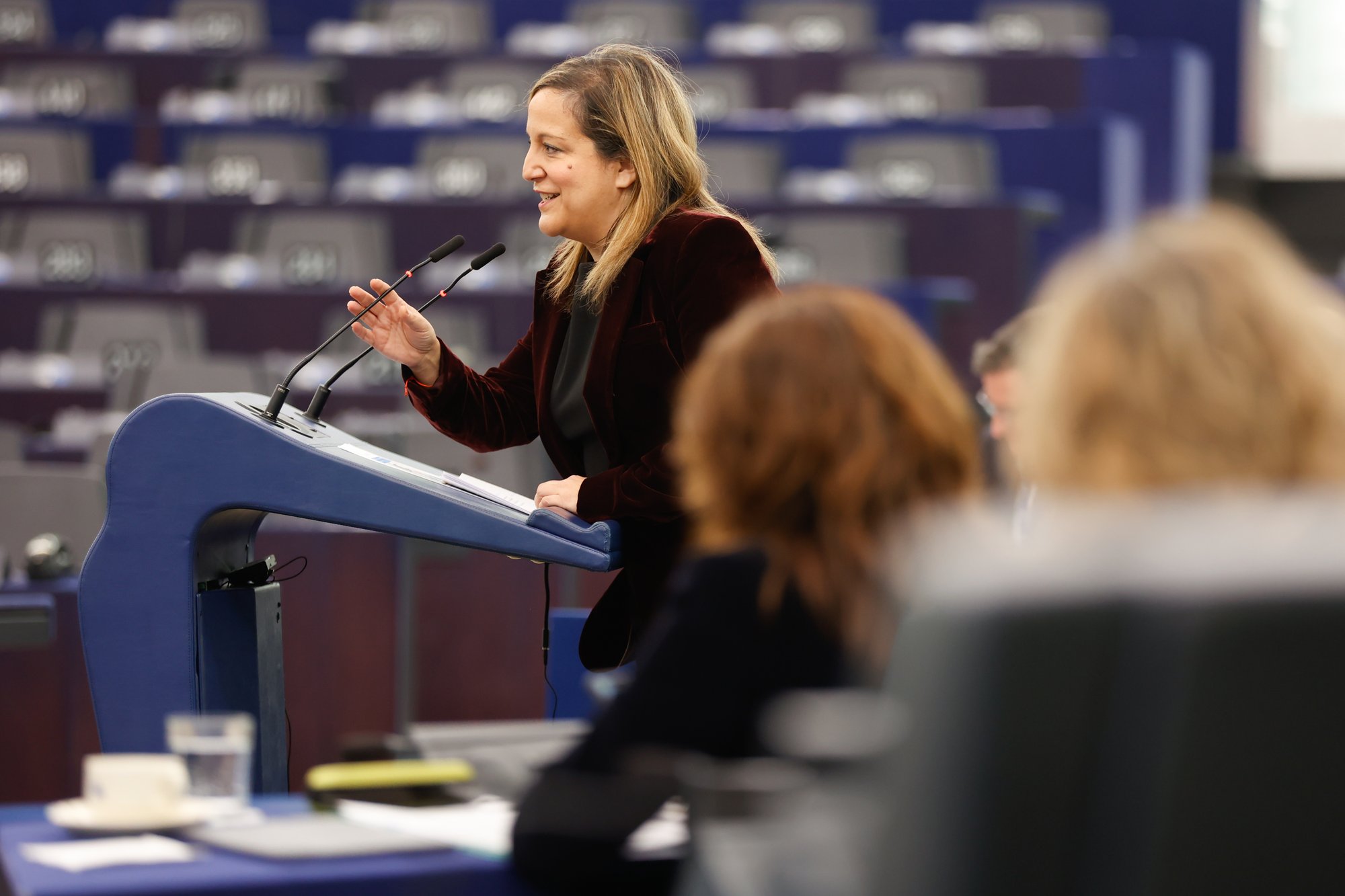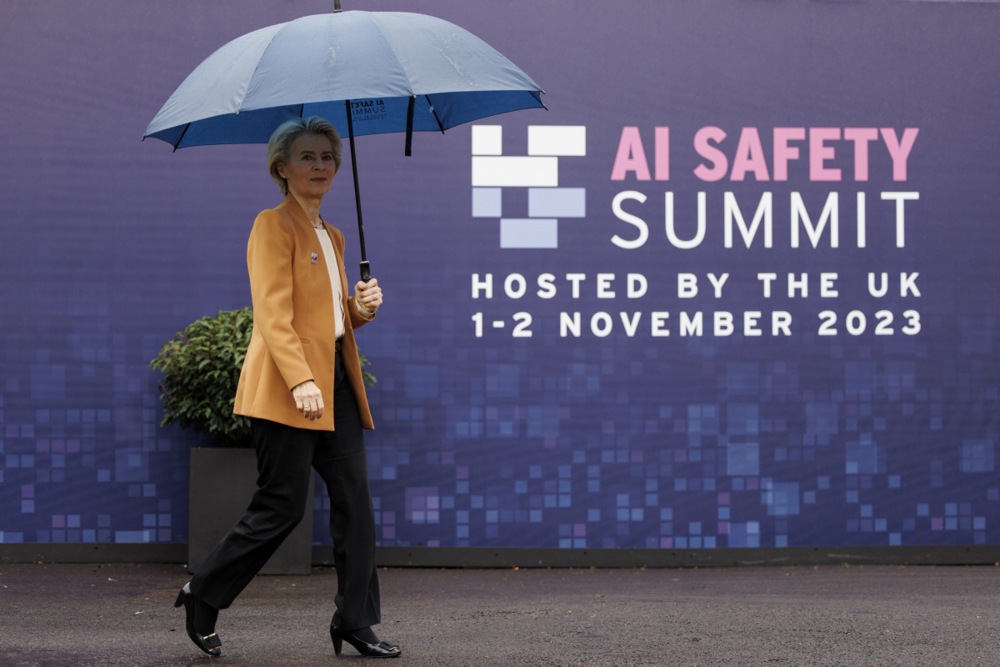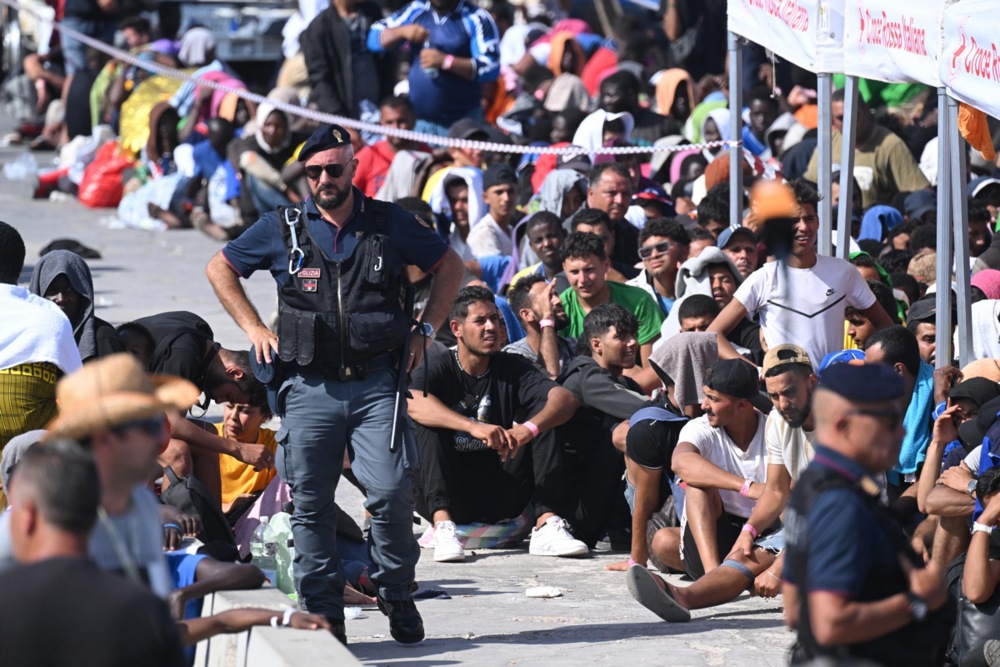Parties critical of the EU look set to gain a quarter of seats in June’s European Parliament elections, on recent polls.
If they want to form a united bloc in the assembly, their subsequent challenges will include bridging differences on foreign policy, observers told Brussels Signal.
On recent polls, the Identity and Democracy (ID) bloc will win 92 seats, with the European Conservatives and Reformists (ECR) picking up 89. This gives the two so-called Eurosceptic groups 181 – or 25.1 per cent – of the Parliament’s 720 seats.
The parties have differing opinions over Ukraine but share sceptical views on migration and climate-change policy. And generally their aim is not to destroy the European Union, but to reform it.
Kathryn Simpson, who teaches EU politics and economics at Keele University, told Brussels Signal: “Many Eurosceptic parties have softened their stance towards leaving the European Union if they are electorally successful – Le Pen in France for example”.
Emma Iannini, a New York-based associate at King & Spalding international law firm who writes often on Euroscepticism, added: “Notice that you don’t hear much, if anything, in support of such a possibility now from Marine Le Pen, a former champion of ‘Frexit’, Georgia Meloni in Italy, Alternative für Deutschland [AfD] in Germany, President Robert Fico in Slovakia, etcetera.”
She added that many of those groups have an eye on polling, such as Geert Wilders in the Netherlands, where “between 2016 and 2022, support for a possible ‘Nexit’ in the Netherlands has fallen from 23 per cent to 13.5 per cent”.
Wilders’ focus is therefore on “making the EU a more inter-governmental and less federal system,” Iannini said.
Likewise, instead of using their likely new Parliament seats to argue for further EU-exits along the lines of Brexit, “Eurosceptic parties are looking for reform within”, Simpson said.
They will want the Parliament to have a full and frank discussion on “further European integration and enlargement”, she said.
In 2024, these no longer seem “fringe” views.
Simpson said that after the 2007-8 financial and Eurozone crisis, the 2015 migrant crisis and, to some extent Brexit, “Eurosceptic rhetoric is also no longer a hallmark of marginal political parties – it’s now far more mainstream in traditional political parties”.
At the same time, ahead of June’s European Parliament elections, Eurosceptic parties have become more sophisticated in their messaging and mobilisation.
Many right-wing and left-wing Eurosceptic parties have gone through a process of “dédiabolisation” – stigma removal – and moved into the realm of the more widely acceptable to the general public, Iannini said.
For example, Rassemblement National leader Marine Le Pen “has succeeded in disassociating herself and her party from the controversial past of her father [former president of the then-Front National] Jean-Marie Le Pen”, she said.
Both Marine Le Pen and Italy’s Prime Minister Meloni have “walked back their praise of Vladimir Putin and Russia and, at least on Meloni’s side, supported the funding of Ukraine’s defence efforts both nationally and in Brussels,” she added.
Ukraine is likely to remain a divisive issue among Eurosceptic parties from different countries.
Le Pen, perhaps with an eye on France’s 2027 presidential election and amid growing weariness with funding Ukraine’s war effort, has “limited herself to criticising the alleged war crimes committed by Russian soldiers in Bucha and other places in Ukraine,” Iannini added.
Nathan William Henceroth in his PhD dissertation, The Engaged Eurosceptic, argued that as another example of their growing sophistication, Eurosceptic parties have also learned that if they are more engaged in European Parliament legislative activities, the media seems to give them more coverage.
Many believe the election’s main losers will be the centre-right European People’s Party (EPP) and centre-left Socialists & Democrats (S&D), which on current polls will together win 41 per cent of seats – down from 61 per cent in 2009.
The EPP, under its leader German MEP Manfred Weber, has particularly warmed to the idea of co-operating with the ECR (the Eurosceptic grouping including Meloni’s Fratelli d’Italia party, Poland’s PiS and Spain’s Vox).
So, while the European Parliament has historically been based on co-operation between the two blocs, many believe the ID and ECR could succeed in pulling the EPP to the right, which as the likely largest group, will effectively run the European Commission.





